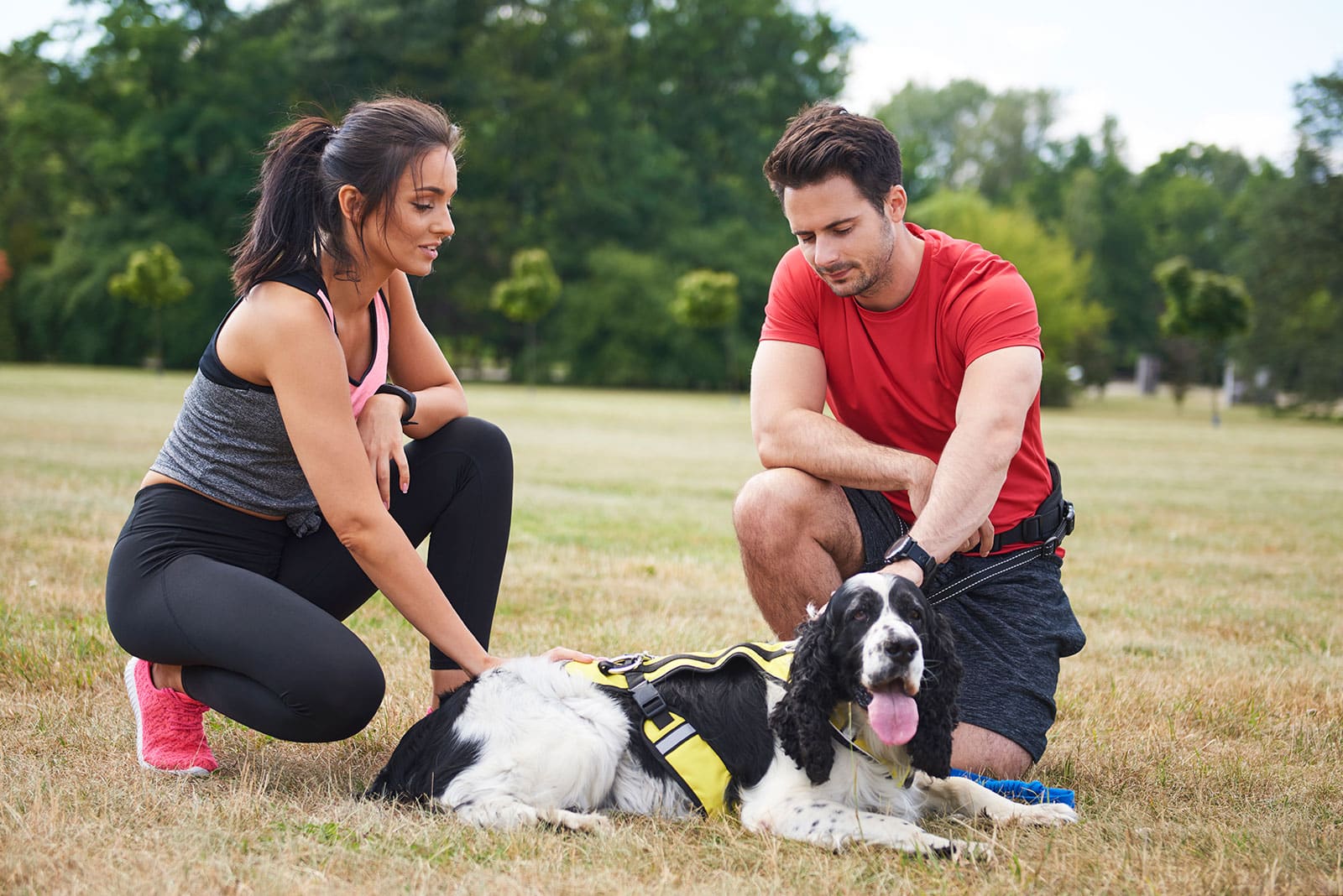Signs your dog is feeling weak or tired during exercise

You’re out on a walk and you notice that your normally playful pooch is slowing down or not acting like their usual self. Are they simply having an off day or is their behaviour a sign of something more sinister?
Exercise intolerance in dogs, as well as lethargy, can indicate an underlying health problem that extends beyond overexertion. But what’s the difference and how can you tell when the situation turns serious?
In this article, we share the signs of weakness and fatigue in dogs during exercise and the health conditions exacerbated by prolonged exercise.
Signs of Weakness and Fatigue in Dogs
The signs of weakness and fatigue in dogs, due to exercise range from the expected, such as panting, to the alarming, such as complete collapse. They include:
- Panting
- Sweating
- Dehydration
- Exhaustion
- Depression
- Reluctance to play
- Sleepiness or tiredness
- Heavy breathing
Exercise Intolerance in Dogs
Dogs that are fit and healthy won’t have any difficulty keeping up during exercise or refuse to play. Regardless of whether the signs above occur suddenly or over time, they are considered signs of exercise intolerance.
Behavioural changes, such as general listlessness, sleeping more than usual and not running up to greet you when you return home, may also indicate exercise intolerance. Any sign that lasts longer than 24 hours warrants a visit to your vet.
In extreme cases of exercise intolerance, your dog may experience an exercise induced collapse (EIC), which may be preceded by an increased body temperature and a wobbly gait. Genetics play a role, so the following breeds are at greatest risk:
- Labrador Retrievers
- Pembroke Welsh Corgis
- German Wire haired Pointers
- Curly-coated Retrievers
- Chesapeake Bay Retrievers
- Boykin Spaniels
Lethargy in Dogs
Lethargy and exercise intolerance in dogs, are terms that are often used interchangeably. While they describe some overlapping symptoms, it’s important to understand they are each unique health conditions, according to veterinarians.
The concern with both conditions is they are often the result of underlying disease. Some of the causes of exercise intolerance in dogs include:
- Heart, lung and upper respiratory diseases
- Anaemia, caused by parasites and infectious diseases, amongst others
- Neuromuscular diseases, such as myasthenia gravis
- Endocrine diseases, like diabetes and hypothyroidism
- Pulmonary diseases, including pneumonia and bronchitis
- Obesity – the number one cause of exercise intolerance in dogs!
The cause of lethargy will often depend on your dog’s age. In younger dogs, lethargy may be caused by fever, parasites and pneumonia to name a few. In older dogs, it may be the result of osteoarthritis, infections and cancer.
Exercising your dog every day will help you notice when their behaviour changes. Your veterinarian will be able to identify any underlying disease, and develop an exercise regime, supported by optimum nutrition, to give them the best support.